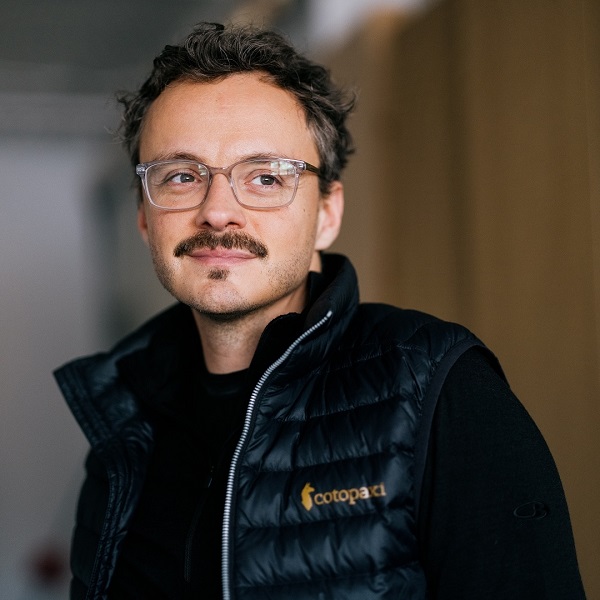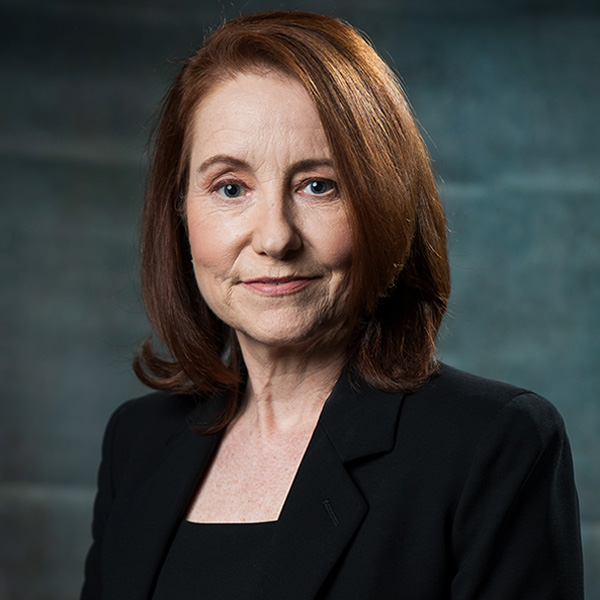Reza Satchu had already caught the entrepreneurial bug when he was a student at McGill and operating a clothing company.
After a semester in science, “it became clear to me that that was not where my passion was so I switched into economics,” says Satchu, BA’91, the founding chairman of Next Canada, a Toronto-based non-profit that aims to boost national prosperity through innovation and entrepreneurship.
“I think what was great for me about McGill was I met my wife there, I met some of my closest friends there, and there were a couple of professors … who had a real impact” and believed in him, says Satchu, acknowledging he wasn’t a “terribly studious kid”.
He went on to a highly successful career building businesses, including supply chain software company SupplierMarket, which he co-founded with his brother and sold for $925 million.
He also started teaching an entrepreneurship course at the University of Toronto that became a hit with students. It was, he says, the precursor to Next Canada.
“I always felt like I wanted to do something for Canada,” says Satchu, who immigrated to Canada from East Africa as a child when former Ugandan dictator Idi Amin “was throwing out all the Indians”. The family settled in Toronto.
Next Canada’s flagship program, Next 36, targets promising young entrepreneurs, selecting 36 students and recent graduates in Canada every year. Divided into teams, they develop a venture idea over eight months and are provided with mentorship from entrepreneurs, instruction from world-class faculty, and seed funding.
McGill has been one of Next Canada’s academic partners from its inception, and to date, 27 McGillians have been chosen for the programs, which have grown to include Next AI, focusing on artificial intelligence, and Next Founders, for people who have already founded startups and want to grow them quickly.
Satchu is a managing partner of Alignvest Management Corp., an asset management business that he co-founded. He also sits on the Chancellor’s Advisory Group on McGill in Toronto, which provides strategic and fundraising advice to the University.
The McGill News spoke with Satchu recently about Next Canada and entrepreneurship.
How would you characterize the state of entrepreneurship in Canada?
I think we’re doing better, but there’s still a lot more to come.
I came back to Canada after having spent 15 years in the U.S. about 10 years ago and that’s when I really started teaching a class on entrepreneurship. What I was trying to do was bridge the gap between what I felt were a lower set of expectations that people had about what was possible and a big chunk of that, I think, had to do with the lack of exposure that they had to entrepreneurial leaders.
Fast forward to today, I think that there are many more avenues for young people to explore entrepreneurial ideas.
I think we still have some fundamental problems in terms of two things. One is there isn’t a developed venture capital network at all here and so it has not attracted particularly experienced venture capitalists.
And the second issue – and I think we’re starting to see it in artificial intelligence – is Canada does need to make some bets around certain industries that they want to focus on.
AI is a prime example where we were ahead of the curve 10, 15 years ago with folks like (U of T professor emeritus and engineering fellow at Google) Geoff Hinton and others. And most of those people have now been picked off, so we’re sort of running hard from behind now. But it’s an area of focus [where] I think you can see everyone coming together and trying to create a national strategy around AI.
The Next 36 launched in 2010 with the aim of increasing Canadian prosperity by developing “high-impact entrepreneurs.” How do you think it is doing?
We’re very pleased with how it’s doing. I think you can measure it a number of ways. I just saw a stat that the vast majority of our alumni donate time and money to the program. The businesses that they have created at Next or that they’ve created subsequently from our program, in aggregate, have done very well.
Whether that’s a Stephen Lake, who was in our program who created Thalmic, which has just raised $150 million from Amazon and Intel, or whether that’s Kira Talent co-founder Emilie Cushman, who created a video online recruiting business, which has done phenomenally well. I think we have given people a really transformative experience around what’s possible and we’ve set them on their entrepreneurial journey.
What sparked the decision to set up the Next AI?
It is undeniably true that AI is going to impact every facet of our lives. AI is going to be probably the most transformative and significant event certainly over the next 20 years.
And so we viewed it as an area where Canada has traditionally had some strength – certainly Montreal and Toronto. It is a part of the economy that we think is going to see tremendous growth. And we felt like we were very well positioned, given our program and given our relationships, to actually deliver on something that we think is going to help lead the ecosystem.
What are the most common mistakes you see among students and recent grads trying to launch startups?
The most common mistake I see is how long it takes for people to get to a customer – meaning it’s remarkable to me how long people will take thinking of an idea, working an idea, without actually having talked to a customer.
I’m constantly telling people that if you’re going to solve a problem, you’ve got to make sure that it’s not a problem you’ve just manufactured but a real problem for customers.
I also think there’s a couple of other things – I have this phrase, and this sounds harsh, but bear with me – any idiot can make a decision with perfect information. I think as an entrepreneur, you’ve got to really develop that skill set where you can make decisions more quickly, with imperfect information.
The final piece of it – and this is really around what blocks people from being entrepreneurs – is I think as an entrepreneur, you’ve got to suspend disbelief around why others, who have far more capital, resources and information than you, aren’t capitalizing on an opportunity that you see.
[Amazon founder] Jeff Bezos had to suspend disbelief that Barnes & Noble, who had been selling books for decades, just missed the whole online book marketplace event. I’m sure Jeff Bezos was not the first person to have that idea. He was the first person to have that idea and say, you know what, those guys at Barnes & Noble are just a bunch of bozos and they’re missing it.
I think you have to have confidence and you’ve got to move quickly. As part of that you’re going to make some mistakes. I think that’s the fourth thing, which is I think as an entrepreneur making mistakes is actually critical to your success. And I know that sounds ridiculous. But you’re not pushing hard enough or taking enough risks if you’re getting everything right.


